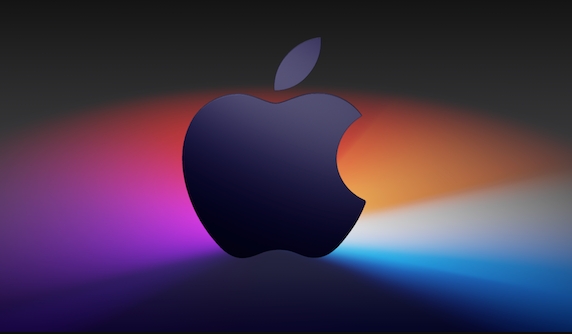Enable File Sharing in System Settings by going to Apple menu ? > System Settings > General > Sharing and checking the File Sharing box. 2. Add the folder to share by clicking the button under Shared Folders, selecting the desired folder, and clicking Add. 3. Set user access permissions by choosing Read & Write, Read Only, Write Only (Drop Box), or No Access for each user, and add users if needed, ensuring they have passwords set. 4. Connect from another device: on a Mac, use Finder’s Shared section and click Connect As… with the Mac’s name; on a Windows PC, enter \[Mac’s IP address] in File Explorer and log in with the Mac username and password. Make sure both devices are on the same network, the firewall isn’t blocking sharing, and the shared folder is on a local drive, then access is complete.

Sharing a folder on a network from your Mac is straightforward if you know where to look. Here’s how to do it step by step.

1. Enable File Sharing in System Settings
First, you need to turn on file sharing:
- Click the Apple menu ? > System Settings (or System Preferences on older macOS versions).
- Go to General > Sharing (you might need to scroll down or find it in the sidebar).
- Check the box next to File Sharing to enable it.
Once enabled, you’ll see "File Sharing" listed with options to configure shared folders and user access.

2. Add the Folder You Want to Share
Now, tell your Mac which folder to share:
- With File Sharing turned on, click the button under the "Shared Folders" list.
- Navigate to the folder you want to share (e.g., a folder on your Desktop or in your home directory).
- Select it and click Add.
The folder will now appear in the list of shared folders. By default, it may already include some standard folders like Public, but you can add any folder.

3. Set User Access Permissions
You can control who can access the shared folder and what they can do:
- In the Users section below the folder list, you’ll see your user account and possibly others.
- For each user, choose one of the following access levels:
- Read & Write – can view and edit files
- Read Only – can view but not change files
- Write Only (Drop Box) – can add files but not see existing ones
- No Access – cannot access the folder
You can also click the under the Users list to add other local users if needed.
Note: For easier access from other Macs or Windows PCs, make sure the user you’re sharing with has a password set (go to Users & Groups in System Settings to manage this).
4. Connect from Another Device
Now that the folder is shared, other devices on the same network can connect:
From another Mac:
- Open a Finder window.
- In the sidebar, look under Shared and click your Mac’s name.
- Click Connect As…, then enter the username and password of the account on the host Mac.
- Once connected, you’ll see the shared folder(s) and can open or transfer files.
From a Windows PC:
- Open File Explorer.
- In the address bar, type:
\\[your-mac-ip-address](e.g.,\\192.168.1.10) - Press Enter.
- Enter the Mac username and password when prompted.
- The shared folder should appear.
To find your Mac’s IP address: go to System Settings > Network, select your active connection, and view the IP under the status.
A few things to keep in mind:
- Make sure both devices are on the same network.
- If you’re having trouble connecting, check your Mac’s firewall settings (in Privacy & Security > Firewall) — it might be blocking file sharing.
- The shared folder must be on a local drive, not an external or network drive in some cases.
Basically, just turn on File Sharing, add your folder, set permissions, and connect from another device using the IP or Mac name. It doesn’t take long once you’ve done it once.
The above is the detailed content of How to share a folder on a network Mac. For more information, please follow other related articles on the PHP Chinese website!

Hot AI Tools

Undress AI Tool
Undress images for free

Undresser.AI Undress
AI-powered app for creating realistic nude photos

AI Clothes Remover
Online AI tool for removing clothes from photos.

Clothoff.io
AI clothes remover

Video Face Swap
Swap faces in any video effortlessly with our completely free AI face swap tool!

Hot Article

Hot Tools

Notepad++7.3.1
Easy-to-use and free code editor

SublimeText3 Chinese version
Chinese version, very easy to use

Zend Studio 13.0.1
Powerful PHP integrated development environment

Dreamweaver CS6
Visual web development tools

SublimeText3 Mac version
God-level code editing software (SublimeText3)

Hot Topics
 How to Remove Old Devices from Apple ID on Mac
Jul 07, 2025 am 09:08 AM
How to Remove Old Devices from Apple ID on Mac
Jul 07, 2025 am 09:08 AM
If you've owned multiple Apple devices over the years, you might find yourself in a situation where some of those older Macs, iPhones, iPads, or other Apple hardware have been sold, given away, or traded. No matter how they left your possession, it's
 How to Play Fortnite on Mac with FnMacAssistant & Sideloadly
Jul 05, 2025 am 09:21 AM
How to Play Fortnite on Mac with FnMacAssistant & Sideloadly
Jul 05, 2025 am 09:21 AM
Fortnite is once again available for iPhone and iPad users, bringing joy to many gamers. However, there's still no official version for Mac (at least not yet). Despite that, Apple Silicon Mac owners aren’t completely out of luck—you can run the iOS/i
 How to Enable iCloud Private Relay on Mac
Jul 05, 2025 am 09:36 AM
How to Enable iCloud Private Relay on Mac
Jul 05, 2025 am 09:36 AM
iCloud Private Relay is an excellent privacy feature included with the iCloud subscription, designed to safeguard your online activity and browsing by masking your IP address (using a temporary one) and encrypting DNS lookups. This prevents third pa
 How to Allow Apps During Downtime on Mac
Jul 04, 2025 am 09:03 AM
How to Allow Apps During Downtime on Mac
Jul 04, 2025 am 09:03 AM
Are you using Screen Time to manage your or your child’s Mac usage? If yes, you likely already know that it allows you to set app limits, schedule downtime on the Mac, and more. Additionally, you can also choose specific apps that remain accessible a
 How to Make MacOS Sequoia Feel Faster: Tips to Speed Up Slow MacOS
Jul 05, 2025 am 09:28 AM
How to Make MacOS Sequoia Feel Faster: Tips to Speed Up Slow MacOS
Jul 05, 2025 am 09:28 AM
macOS Sequoia is a solid operating system that brings some impressive features like iPhone Mirroring, and while performance is excellent for many users, not everyone experiences the same level of speed. If you're finding macOS Sequoia slower than pre
 How to See All Links Shared in Messages on iPhone & iPad
Jul 05, 2025 am 09:31 AM
How to See All Links Shared in Messages on iPhone & iPad
Jul 05, 2025 am 09:31 AM
If you frequently use iMessage, then you've likely shared numerous web links in your chats — maybe an article, a video, a tweet, a song, or anything else. Locating these links later can be quite frustrating, but thankfully there's a simpler method th
 Create a MacOS Tahoe 26 Beta VM with Three Commands in Terminal Using tart
Jul 06, 2025 am 09:28 AM
Create a MacOS Tahoe 26 Beta VM with Three Commands in Terminal Using tart
Jul 06, 2025 am 09:28 AM
Advanced Mac users familiar with the command line can swiftly set up a MacOS Tahoe 26 beta virtual machine by entering a few commands into Terminal, using tart. Tart is a command-line utility for managing virtual machines and offers one of the quicke
 WindowServer Quit Unexpectedly: How to Fix It on Mac Air/Pro?
Jul 05, 2025 am 09:17 AM
WindowServer Quit Unexpectedly: How to Fix It on Mac Air/Pro?
Jul 05, 2025 am 09:17 AM
What is WindowServer and why is it importantWindowServer is a core macOS process that manages how apps and windows appear on screen. It handles GUI rendering, controls internal and external displays, and enables all vis






